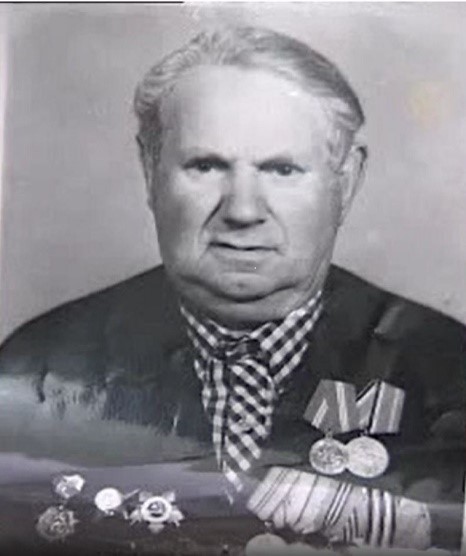Beniuma (Biniamin) Roitman was born in 1924 in Balta, southwestern Ukraine. His father Mendel was a stove maker. The family was religious and Yiddish-speaking. After finishing five classes of Yiddish school, Beniuma began to assist his father in his work. He was a good soccer player, becoming captain of the Balta soccer team by the age of 15-16. After the outbreak of the Soviet-German War, the Roitmans failed to evacuate and found themselves under Romanian occupation. Their house became part of the Balta Ghetto.
In March 1944, Balta was liberated by the Red Army. On the second day after the liberation, Beniuma Roitman was drafted into the Red Army. Initially, he served as an auxiliary for the units of the 5th Guards Army stationed in Pervomaisk (east of Balta); his job was loading and unloading train cars, etc., and he was not even issued a uniform. Later, after a brief military training, Roitman was attached to the 129th Separate Anti-Tank Battalion, which was part of the 55th Rifle Division. His unit was deployed in Polesia, later moving to eastern Poland (Białystok), Lithuania, Latvia, and East Prussia. In the spring of 1945, Roitman was in the Berlin area, but then the unit was recalled to East Prussia, where Roitman met V-E Day. His highest wartime rank was that of sergeant. He was awarded several medals in the course of the war.
Roitman was discharged from the military in 1947, and he resumed his work as a stove maker. His son Vladimir, a furniture maker, immigrated to Israel; Beniuma Roitman lived in Tiraspol, Moldova.







